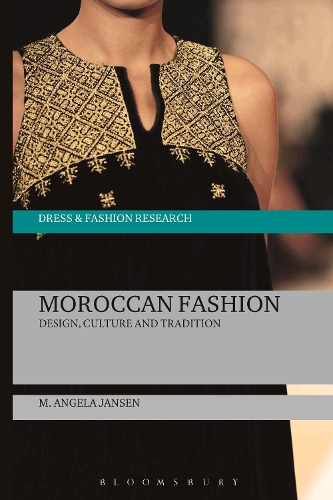
Moroccan Fashion: Design, Culture and Tradition
(Hardback)
Available Formats
Publishing Details
Moroccan Fashion: Design, Culture and Tradition
By (Author) M. Angela Jansen
Bloomsbury Publishing PLC
Bloomsbury Academic
4th December 2014
United Kingdom
Classifications
Professional and Scholarly
Non Fiction
Fashion and textile design
Social and cultural anthropology
391.00964
Physical Properties
Hardback
160
Width 156mm, Height 234mm
440g
Description
Moroccan garment design and consumption have experienced major shifts in recent history, transforming from a traditional craft-based enterprise to a thriving fashion industry. Influenced by western fashion, dress has become commoditized and has expanded from tailoring to designer labels. This book presents the first detailed ethnographic study of Moroccan fashion. Drawing on interviews with three generations of designers and the lifestyle press, the author provides an in-depth analysis of the development of urban dress, which reveals how traditional dress has not been threatened but rather produced and consumed in different ways. With chapters examining themes such as dress and politics, gender, faith, modernity, and exploring topics from craft to e-fashion, this book will be essential reading for students and scholars of fashion, anthropology, material culture, sociology, cultural studies, gender studies and related fields.
Reviews
Moroccan Fashion is a valuable addition to the growing field of non-Western fashion studies ... The book is to be lauded for its scope and attention to detail, as is Jansens conviction that fashion is a global phenomenon and not one manifested only in European/Western haute couture and high street fashions. * Costume *
This informative and very comprehensively written study provides a good insight into a phenomenon that has only been perceived scientifically to date at the periphery, and can therefore rightly be described as pioneering work. * Anthropos (Bloomsbury Translation) *
This book presents an important contribution to both fashion history and anthropology; convincingly and with sincerity and the author treats dress as the materialisation of broad, interrelated cultural phenomena, historical and economic processes and societal changes within a non-European nation rather than artefacts of alien traditions and cultures which resist transformation and development or items of purely technical interest. -- Hailey Maxwell * LSE Review of Books *
This is an engaging and carefully situated analysis of generations of Moroccan fashion designers who artfully negotiate cultural heritage and global trends through their products. -- Loubna Skalli-Hanna, International Development Program, School of International Service, American University, Washington, DC, USA
Author Bio
M. Angela Jansen is Postdoctoral Researcher at London College of Fashion, University of the Arts London, UK.
